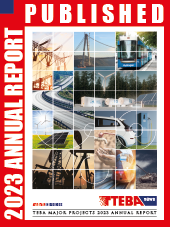10/18/2017
World Bank’s Country Director for Turkey Zutt: “We Will Revise the Growth Estimate for Turkey as 5 or 5.1 Percent”
“I think the biggest challenge for Turkey in the medium run is to enhance the productivity of Turkish companies. The technology used in products sold to Europe by Turkey should be elevated
The most significant fragility of Turkey is its dependence on foreign capital flow to finance the current account deficit. The fact that there is a big difference between savings and investments in Turkey is another risk with future prospects.”
World Bank’s Country Director for Turkey Johannes Zutt replied the questions of the AA journalist after the International Monetary Fund (IMF) – World Bank Annual Meetings held in Washington D.C. Zutt said that the World Bank will update their growth expectations for Turkey upon disclosure of the GDP figures regarding the third quarter. Zutt stating that the new growth estimates are expected to be close to the figures disclosed by IMF last week, said “We will most probably revise the growth estimate for Turkey for this year as 5 or 5.1 percent similar to the expectation of IMF. Because we expect that the powerful performance which we have witnessed in the second quarter will also be continued in the third quarter.” Zutt stating that the World Bank expects the Turkish economy to grow by around 3.5 percent next year, said “We foresee that the economy will continue growing at a lower rate than its present performance. For this reason, we expect the growth rate to come back to a trend of around 3.5 to 4 percent.” Zutt also said that it is possible that the government can achieve the growth rate target of 5.5 percent set forth for the next 3 years. Zutt underlining that the Turkish economy can only achieve a sustainable growth path by means of structural reforms, stated that there is still need for reforms in areas such as more productivity in the labor market, expansion of capital markets, a better management of public expenditures and enhancing the quality of education. “The biggest challenge for Turkey in the medium run is to enhance the productivity of Turkish companies” Zutt spoke as follows: “I think the biggest challenge for Turkey in the medium run is to enhance the productivity of Turkish companies. The efficiency of companies in Turkey is in a horizontal path since years. The technology of products exported to Europe from Turkey is in a falling trend rather than keeping a horizontal path. The technology used in products sold to Europe by Turkey should be elevated.” Johannes Zutt pointing out that the fact that there is a big difference between savings and investments in Turkey is another risk with future prospects, said that the economy administration is well aware of these facts and is displaying necessary efforts. “We foresee that the inflation rate will once more come down to a level of around 7-8 percent in the near future” Zutt commenting on the inflation rate which rose to 11 percent as of September, said that 3 factors have a negative influence in the inflation rate including the increase in food and oil prices and the loss of value in the Turkish Lira. Zutt noting that savings in Turkey are at very low levels in comparison with investments, said “The most significant fragility of Turkey is its dependence on foreign capital flow to finance the current account deficit.” Zutt stating that a number of companies in Turkey make borrowings in foreign currency, namely euros and dollars and that back-payments of around $ 170 billion on an annual basis have already been postponed, said that healthy balance sheets of companies and strong relations with banks are facilitating the postponement of debt payments. Zutt pointing out that companies in debt may face difficulties in providing loans in case of a loss of trust resulting from a sharp fall in the Turkish Lira, said that this has to be watched closely although such a risk is not in question for the time being.
Annual Report
